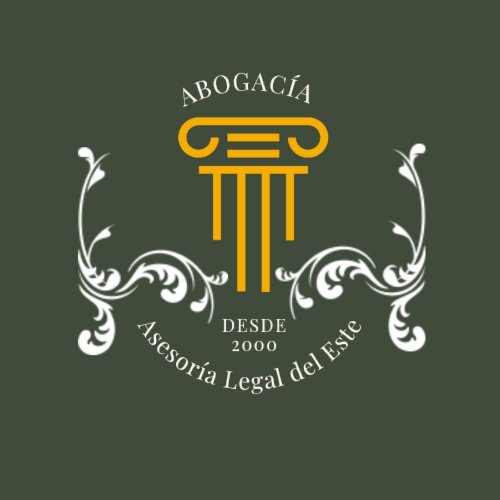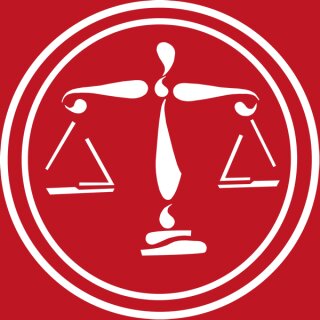Best Animal Law Lawyers in Paraguay
Share your needs with us, get contacted by law firms.
Free. Takes 2 min.
Or refine your search by selecting a city:
List of the best lawyers in Paraguay
About Animal Law in Paraguay
Animal law in Paraguay is a developing field that addresses various legal issues related to animals, both domestic and wild. The country's legal framework aims to ensure the welfare and protection of animals through specific statutes and regulations. The law also outlines the responsibilities of animal owners and the consequences of animal cruelty or neglect. Various legal instruments govern animal-related issues, including environmental protections, agricultural policies, and domestic animal laws. Animal law is particularly important in Paraguay due to its rich biodiversity and the cultural significance of livestock farming.
Why You May Need a Lawyer
Certain situations necessitate legal advice in the field of animal law. You may require a lawyer if:
- You face accusations of violating animal welfare laws.
- You are involved in a dispute over animal ownership or custody.
- You need to understand agricultural and livestock regulations affecting your business.
- You experience issues related to pet sales or breeding.
- You need to address potential animal neglect or cruelty cases.
- You require guidance on wildlife conservation laws.
- You receive complaints regarding noise or disturbances caused by animals.
- You face liability issues caused by animal behavior.
- Your animals are confiscated by authorities.
- You require assistance with zoning laws related to animal housing or husbandry.
Local Laws Overview
Animal law in Paraguay includes several legal guidelines and regulations aimed at protecting animals and ensuring humane treatment. Key aspects of the local laws include:
- The Law for the Protection of Animals, which sets standards for humane treatment and enforces penalties for cruelty and neglect.
- Regulations governing animal husbandry, particularly for livestock, to ensure ethical agricultural practices.
- Wildlife protection statutes that safeguard native species and regulate hunting and trade.
- Zoning laws that define where animals may be kept, especially in urban areas.
- Animal welfare guidelines for pets, including standards for shelters and veterinary care.
- Certain international agreements impacting wildlife conservation, to which Paraguay is a signatory.
Frequently Asked Questions
What constitutes animal cruelty under Paraguayan law?
Animal cruelty can include neglect, physical abuse, failure to provide necessary care, and any action causing unnecessary suffering or death to an animal.
How can I report animal cruelty?
Reports of animal cruelty should be directed to local law enforcement or dedicated animal protection agencies. Follow their procedures for submitting complaints.
Are there laws regulating pet sales?
Yes, laws regulate pet sales to ensure ethical practices, including health checks and appropriate housing conditions for animals being sold.
What are my obligations as a pet owner?
Pet owners must provide adequate food, shelter, and veterinary care and must not allow their animals to pose threats to other people or animals.
Are wild animals protected by law in Paraguay?
Yes, wild animals are protected under various conservation laws that aim to preserve biodiversity and regulate interactions with wildlife.
Can I keep exotic pets?
Ownership of exotic pets is subject to stringent regulations requiring permits, which are only granted under certain conditions to ensure the animals' welfare and public safety.
What measures exist for livestock protection?
Livestock protection laws encompass proper handling, transport, and humane slaughter practices, as well as relevant health and sanitary standards.
Who enforces animal law in Paraguay?
Enforcement is carried out by local police, environmental agencies, and specific animal welfare organizations that work in concert with governmental regulations.
How does Paraguay address wildlife trafficking?
Wildlife trafficking is illegal under Paraguayan law, with measures in place for monitoring, enforcement, and penalties for individuals involved in such activities.
What should I do if my pet is confiscated by authorities?
If your pet is confiscated, you should seek legal advice promptly and contact the local authorities to understand the specific reasons and any potential for retrieval.
Additional Resources
For further assistance, consider reaching out to the following:
- The Ministry of Environment and Sustainable Development, which oversees wildlife and environmental protection.
- Local animal welfare organizations that can provide guidance and advocacy.
- Legal aid services specializing in agricultural and environmental law.
- Veterinary associations that may offer advice on regulatory compliance for pet owners.
Next Steps
If you require legal assistance in animal law, consider the following steps:
- Identify the specific legal issue or concern you are facing.
- Research and contact a lawyer who specializes in animal law to discuss your case.
- Gather all relevant documentation, evidence, and information pertaining to your situation.
- Consult with local animal welfare agencies for immediate support if applicable.
- Prepare for any legal proceedings by understanding your rights and obligations under the law.
Lawzana helps you find the best lawyers and law firms in Paraguay through a curated and pre-screened list of qualified legal professionals. Our platform offers rankings and detailed profiles of attorneys and law firms, allowing you to compare based on practice areas, including Animal Law, experience, and client feedback.
Each profile includes a description of the firm's areas of practice, client reviews, team members and partners, year of establishment, spoken languages, office locations, contact information, social media presence, and any published articles or resources. Most firms on our platform speak English and are experienced in both local and international legal matters.
Get a quote from top-rated law firms in Paraguay — quickly, securely, and without unnecessary hassle.
Disclaimer:
The information provided on this page is for general informational purposes only and does not constitute legal advice. While we strive to ensure the accuracy and relevance of the content, legal information may change over time, and interpretations of the law can vary. You should always consult with a qualified legal professional for advice specific to your situation.
We disclaim all liability for actions taken or not taken based on the content of this page. If you believe any information is incorrect or outdated, please contact us, and we will review and update it where appropriate.
Browse animal law law firms by city in Paraguay
Refine your search by selecting a city.












